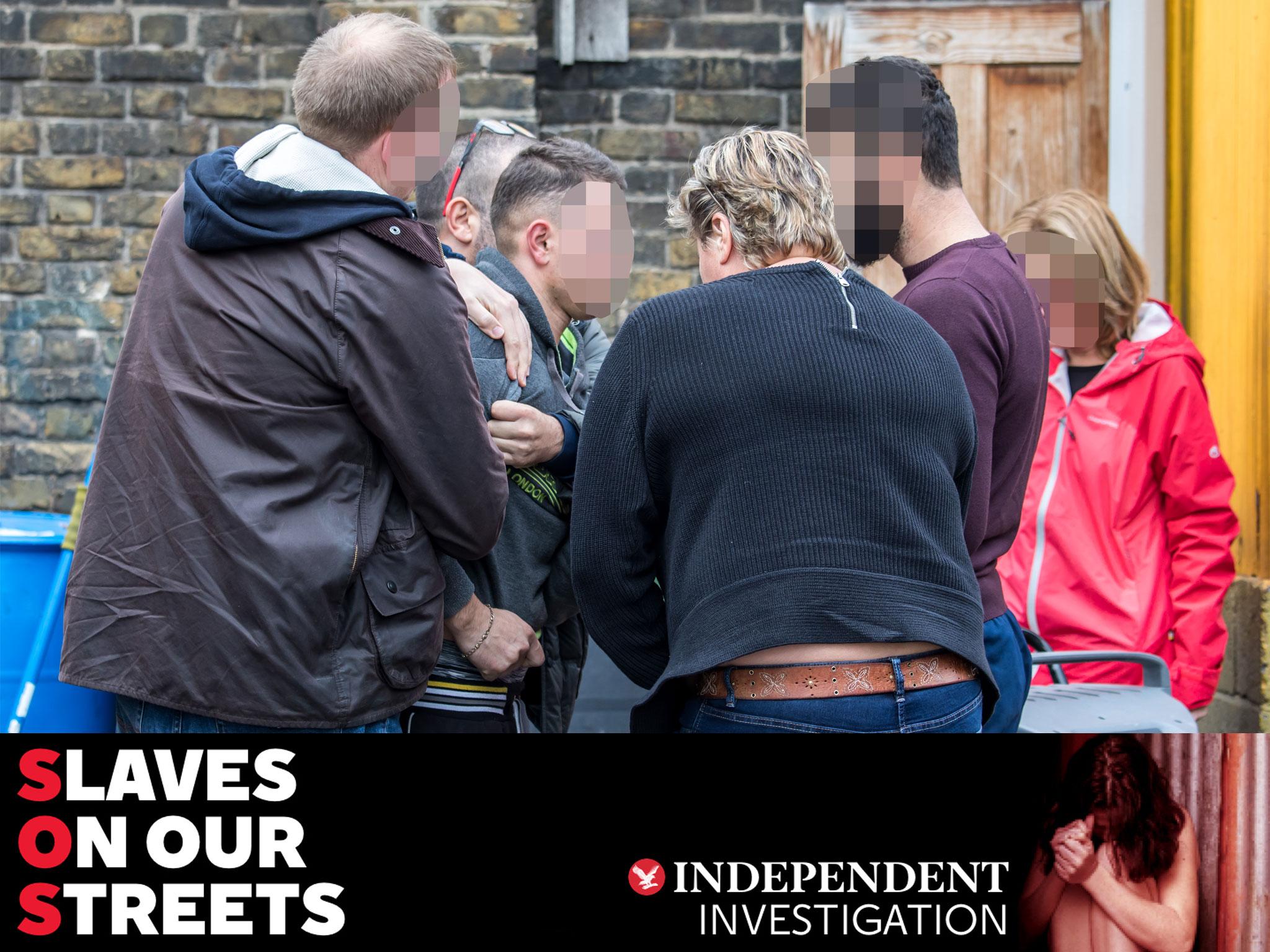Slaves on our Streets: Anti-Slavery Commissioner praises Independent special investigation's impact
Kevin Hyland says campaign has already led to increase in law enforcement activity to stop scourge of modern slavery on streets of London

The Independent Anti-Slavery Commissioner (IASC), Kevin Hyland, says The Independent and the London Evening Standard special investigation into modern slavery has already had a positive effect on efforts to combat the problem in the capital.
“[The investigation] has been key,” said Mr Hyland. “It has only been going a month but it is really starting to generate responses. We’re already seeing more reports, and more law enforcement activity. It has been a real step forward.
Mr Hyland’s comments came as he launched the IASC annual report, detailing his department’s efforts over the past 12 months and outlining their next areas of focus. His role was created in 2015, as part of the Modern Slavery Act.
“If we look at where we are now, two years on from the Act, did we think we’d be this far forward? No,” said Mr Hyland. “But at a time when there are so many challenges in the world, modern-day slavery has remained at the top of UK priorities and is at now rising on the international agenda.
“The introduction and global agreement of a specific UN development goal is to eradicate modern slavery by 2030. It’s a big task, but in the UK we are on track. William Wilberforce changed things in 20 years, at a time when slavery was legal.”
On the victim support side, Mr Hyland has been a vocal critic of the national referral mechanism (NRM), by which potential victims of modern slavery in the UK are assessed for support.
“We made recommendations to the Government, and I’m confident we’re going to see very significant changes to that support,” said Mr Hyland. “But we need every government agency working together, from local authorities to the HM Revenue & Customs and Health & Safety as well as law enforcement, otherwise modern-day slavery will remain a niche subject.”
Law enforcement is another priority. Of the estimated 13,000 victims of modern slavery in the UK, only a small number enter NRM, and an even smaller number of criminal cases are brought. “We’ve seen a 159 per cent increase in crimes recorded, which is a significant jump,” Mr Hyland said.
“The National Crime Agency has completely changed its response, and it now treats modern slavery cases as a priority. We’re seeing cases prosecuted without victims present, which is a step forward. We’ve educated 1,500 judges about modern slavery so they know to see it as the serious crime that it is, one of the most serious on our statute books. And now we are seeing sentences of 15 years plus, rather than two or three.”
Another focus of the report is Britain’s bilateral arrangements with foreign governments. Albania, Vietnam and Nigeria are the most common origin countries for slaves in the UK. Part of the IASC’s effort is in working abroad to prevent potential victims from being trafficked in the first place.
But we should not forget the third highest recorded victims in the UK is British nationals including 255 children – proof, if it were needed, that no country or nationality is immune.
“Some 11,000 women arrived in Italy from Nigeria last year, and the International Organisation for Migration estimates as many as 80 per cent of them are destined for domestic servitude. forced labour or sexual exploitation, including here in the UK,” he said. “The only way to get real change is to go back to source, by taking away the power of these criminals in the areas where they operate.”
Public awareness is only helpful if it leads to concrete action, Mr Hyland said. “The Independent has drawn attention to the scandal of car washes. But it’s no good educating the public about nail bars and car washes if, when they are reported, no action is taken.
”To make modern slavery socially unacceptable and push it off the high street we need three things: public awareness, good laws, and for those laws to be enforced. If any part is missing, the crime may continue.“
Subscribe to Independent Premium to bookmark this article
Want to bookmark your favourite articles and stories to read or reference later? Start your Independent Premium subscription today.

Join our commenting forum
Join thought-provoking conversations, follow other Independent readers and see their replies